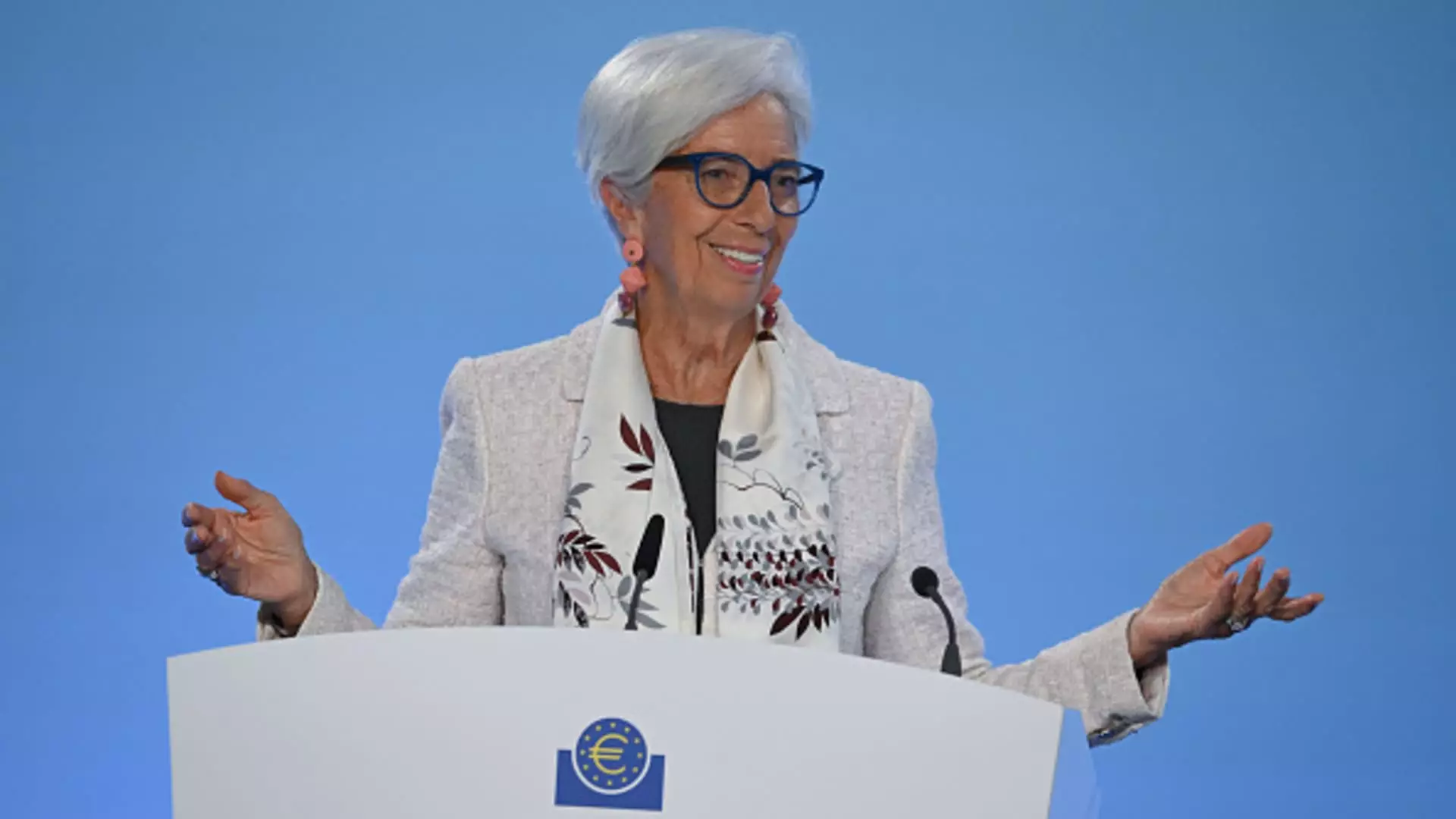The euro zone’s inflation rate for the month of August has surprised analysts by coming in higher than expected. According to preliminary data from the European statistics office, headline inflation stood at 5.3%, surpassing the 5.1% forecasted in a Dow Jones poll. Although this figure remains unchanged from July, it presents a dilemma for the region’s central bank, the European Central Bank (ECB).
Once again, food prices played a significant role in driving headline inflation. However, there was a decrease of 1 percentage point compared to the previous month. Despite this decline, food prices continue to have a significant impact on overall inflation within the euro zone.
Core inflation, which excludes volatile items, is a key metric that the ECB closely monitors. Over the same period, core inflation decreased by 0.2 percentage points and is now aligned with headline inflation at 5.3%. This convergence raises concerns as it suggests that inflationary pressures persist in the euro zone.
Robert Holzmann, a member of the ECB known for his hawkish stance, noted that the inflation data presents a conundrum for the central bank. With persistently high inflation levels, the ECB faces challenges in determining its next course of action. The central bank is scheduled to meet on September 14 to decide whether to raise interest rates further.
Since July 2022, the ECB has already increased rates by a substantial 4.25 percentage points. At the previous policy meeting, ECB President Christine Lagarde stated that future decisions would be guided by incoming data, suggesting that further rate hikes or a temporary pause were possible. Notably, she emphasized that a rate cut was not on the table.
Despite recent declines, the persistence of high prices raises questions about the ECB’s approach. Should the central bank consider additional rate hikes in its ongoing efforts to bring inflation down to the desired target of 2%? This quandary highlights the delicate balancing act faced by the ECB in managing inflationary pressures while supporting economic recovery.
As the euro zone grapples with inflationary challenges, it remains crucial for the ECB to carefully analyze and assess the evolving economic landscape. The decision on interest rates will have significant implications for businesses, consumers, and the wider European economy. The central bank’s ability to navigate these uncertain times will play a critical role in shaping the future stability and growth of the euro zone.


Leave a Reply